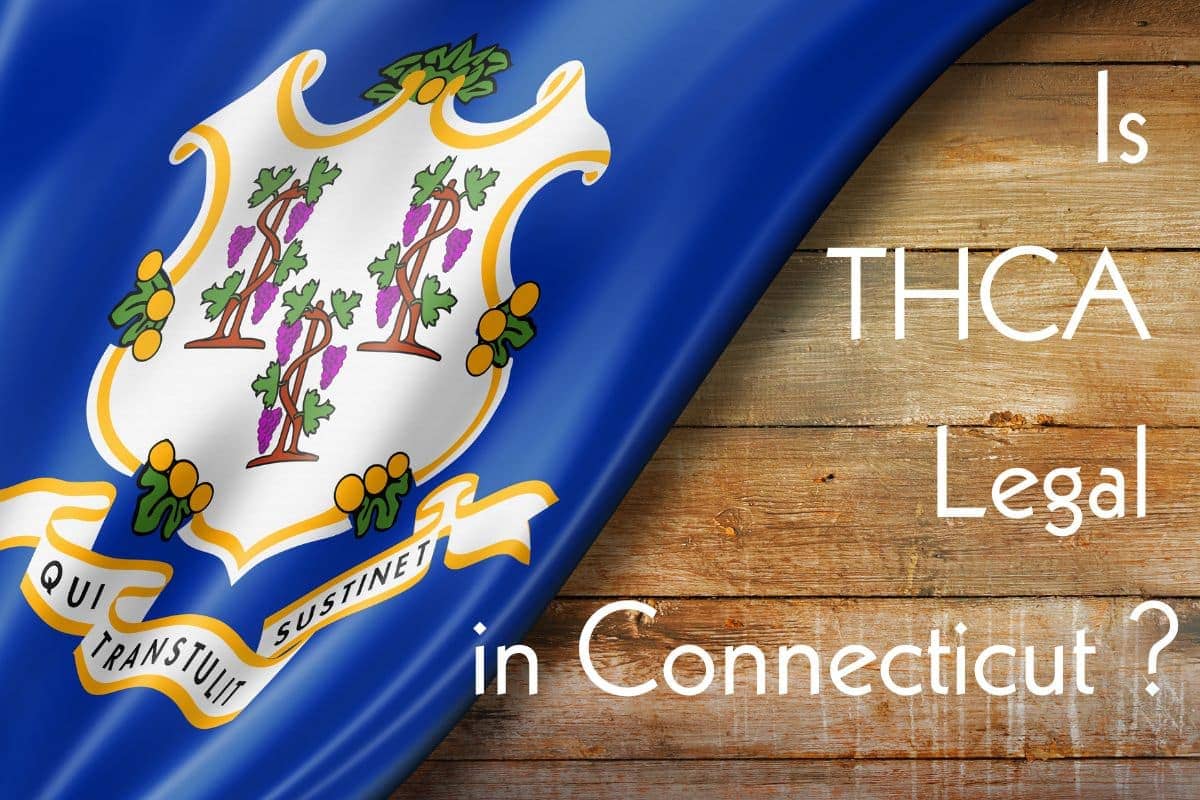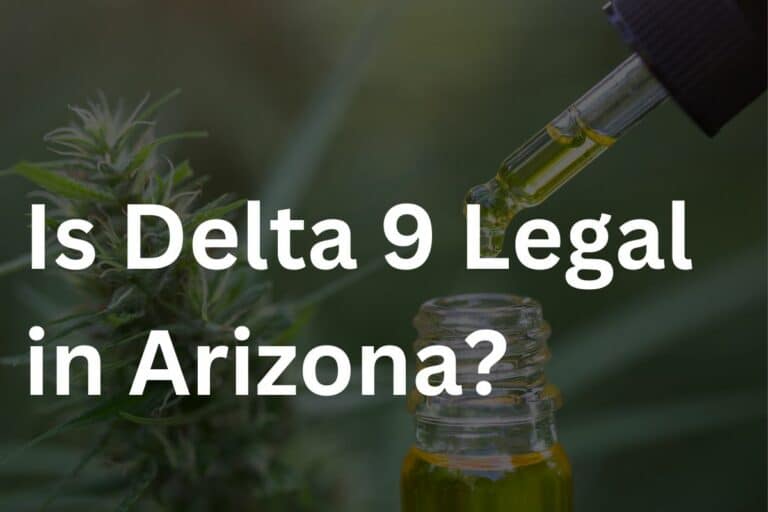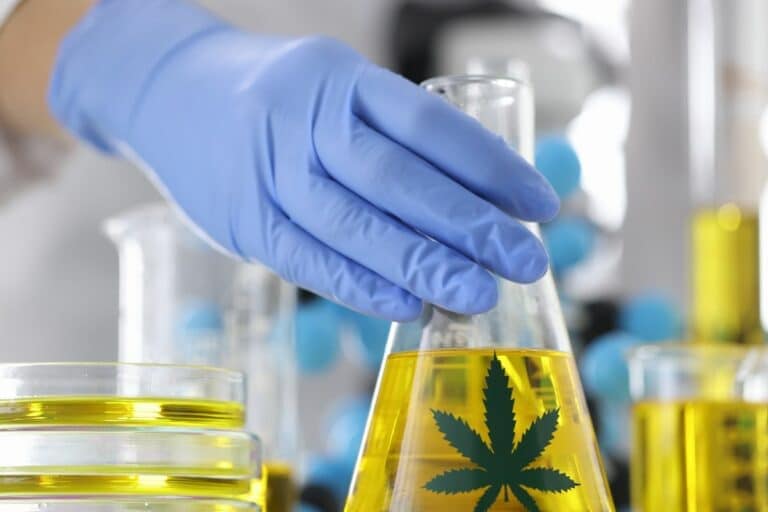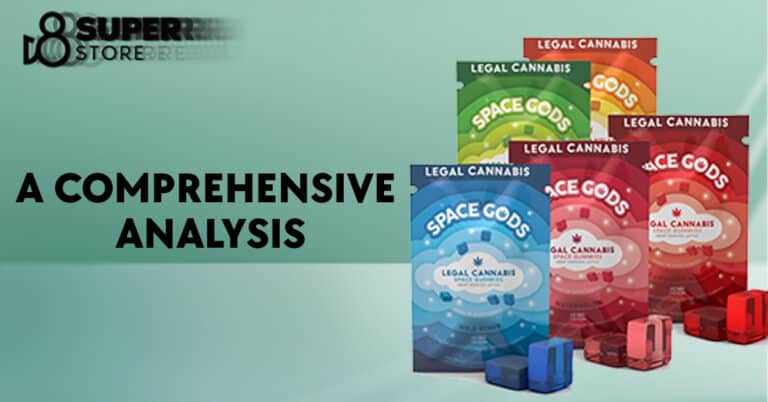Is THCa Legal in Connecticut: An Overview of State Regulations
Jump into the world of **Connecticut’s marijuana rules**, and getting the scoop on what’s cool and what’s not is mega important. Check out THCa, the laid-back member of the weed fam. This dude stays low-key, not messing with your vibe because, really, it’s just the chill version that turns into delta-9 THC, the soul of the bash, when the heat is on. Before it switches up, or “decarboxylates,” THCa is just vibing, totally relaxed and lucid. Dive into the differences between THCa and delta-9 THC. Trust me, it’s a move you won’t regret!
In Connecticut, the focus within cannabis legislation often revolves around delta-9 THC, the primary psychoactive component. Legal considerations take into account the amount of delta-9 THC for determining the legality of a cannabis product. Since THCa can convert to THC upon heating, its presence and quantity in cannabis products are essential in the conversation about legality and regulation.
Your understanding of cannabis legality in Connecticut should include the recognition that the state has enacted measures to control the production, sale, and possession of cannabis. As pertains to THCa, its legal status is intertwined with that of the broader cannabis laws. While Connecticut has moved towards more progressive cannabis policies, compliance with specific regulations remains a cornerstone of legal cannabis use within the state.
Understanding THCa and Its Properties
As you explore the world of cannabinoids, it’s crucial to understand that Tetrahydrocannabinolic acid (THCa) is a non-psychoactive precursor to THC, the compound known for its psychoactive effects. Through the application of heat, a process known as decarboxylation, THCa is converted into THC.
| Property | Description |
|---|---|
| Form | Found in raw cannabis, primarily in live or fresh plants |
| Activation | Requires decarboxylation (heat) to become THC |
| Psychoactivity | Non-psychoactive in its raw form, does not induce a “high” |
| Potential Benefits | Limited research, but potential anti-inflammatory, neuroprotective, and anti-emetic properties |
| Methods of Consumption | Found in raw cannabis, can be consumed through fresh juices, smoothies, or as a dietary supplement |
| Legal Status | Generally not regulated or restricted as it is non-psychoactive, but regulations vary by jurisdiction |
| Interaction with CB1 Receptors | Does not directly bind to CB1 receptors, unlike its decarboxylated form (THC) |
Chemical Structure of THCa
The chemical structure of THCa is distinctive because it possesses a carboxyl group that THC lacks. This is a key aspect of its nature—it’s this group that is removed during decarboxylation, transforming the molecule into THC. This process involves the application of heat, as in smoking or vaporizing, which leads to the psychoactive effects associated with cannabis.
Differences Between THCa and THC
THCa and THC are both cannabinoids, but their effects on your body are quite different. THCa is non-psychoactive, meaning it won’t produce the high that’s typically associated with cannabis use. THC, on the other hand, has psychoactive properties. When THCa is exposed to heat, or as it slowly dries, it converts to THC, which interacts with the endocannabinoid system to produce a range of effects, from relaxation to altered sensory perception.
Psychoactive Effects of THCa
THCa itself doesn’t produce psychoactive effects. Its lack of activity at the CB1 receptor, which THC binds to induce psychoactivity, means that THCa won’t get you high. However, when THCa is decarboxylated—through smoking, vaporizing, or cooking—it converts into THC, and that’s when the psychoactive effects become present. This is a vital distinction to keep in mind when you’re considering the properties of THCa.
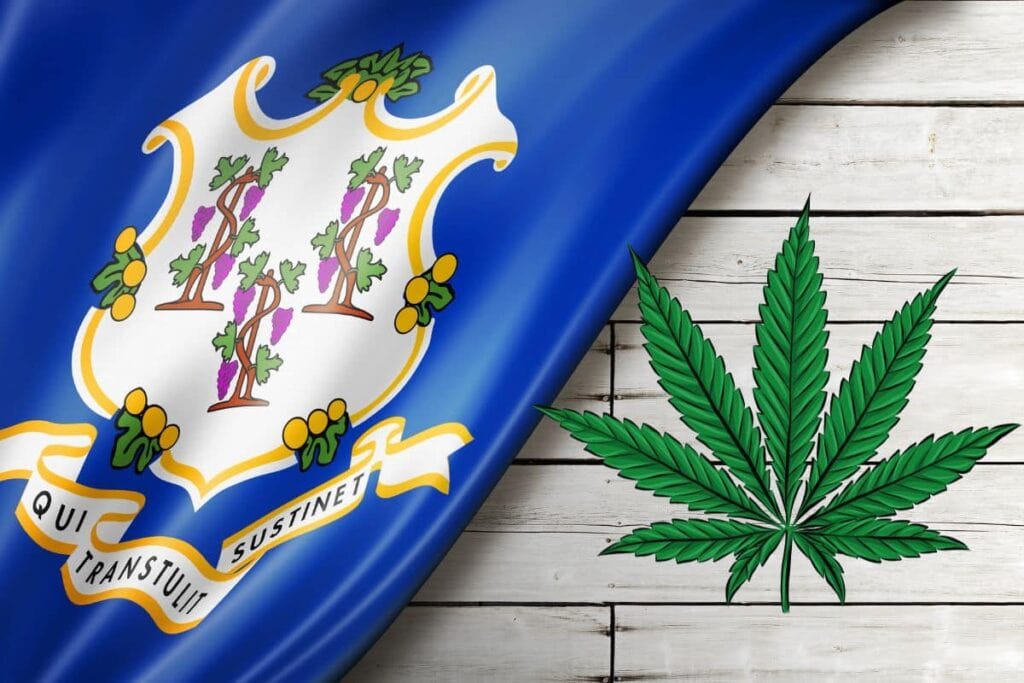
Legal Framework for Cannabis in Connecticut
In the state of Connecticut, the legal landscape surrounding cannabis has been structured to distinguish between medical and recreational use. You’ll find that regulations have been carefully tailored to address various aspects of usage, possession, and distribution within the state.
Connecticut State Cannabis Laws
In Connecticut, cannabis is legal for both medical and recreational purposes. Under state law, adults 21 years of age and older may legally possess and use cannabis. However, public consumption of cannabis is prohibited, and there are strict guidelines governing how cannabis can be legally purchased and consumed.
Possession Limits:
- For recreational use: Adults can possess up to 1.5 ounces of cannabis on their person and up to 5 ounces in a locked container at home or in a vehicle’s glove box or trunk.
- For medical use: Qualifying patients are allowed to possess an amount that is reasonably necessary for a one-month supply, as recommended by a certified physician.
Cultivation:
- Recreational cultivation is not currently permitted.
- Registered patients and their designated caregivers will be allowed to cultivate a limited number of cannabis plants at home beginning in July 2023.
Medical vs Recreational Use Regulations
Medical Cannabis:
If you’re a registered medical marijuana patient in Connecticut, you enjoy certain privileges that are not extended to recreational users. You are permitted to purchase and possess greater amounts of cannabis and have access to a wider array of cannabis-infused products. To register as a medical cannabis patient, you must be diagnosed with a qualifying medical condition by a certified healthcare provider.
Recreational Cannabis:
As for recreational cannabis, the laws are more restrictive. While you can legally purchase cannabis from licensed dispensaries, the types and quantities of products you can purchase at once are more limited in comparison to the medical program.
Connecticut has implemented these cannabis laws to ensure control over the cultivation, distribution, and consumption of cannabis within the state. These laws also aim to prevent the illegal sale and unregulated use of marijuana and maintain public health and safety.
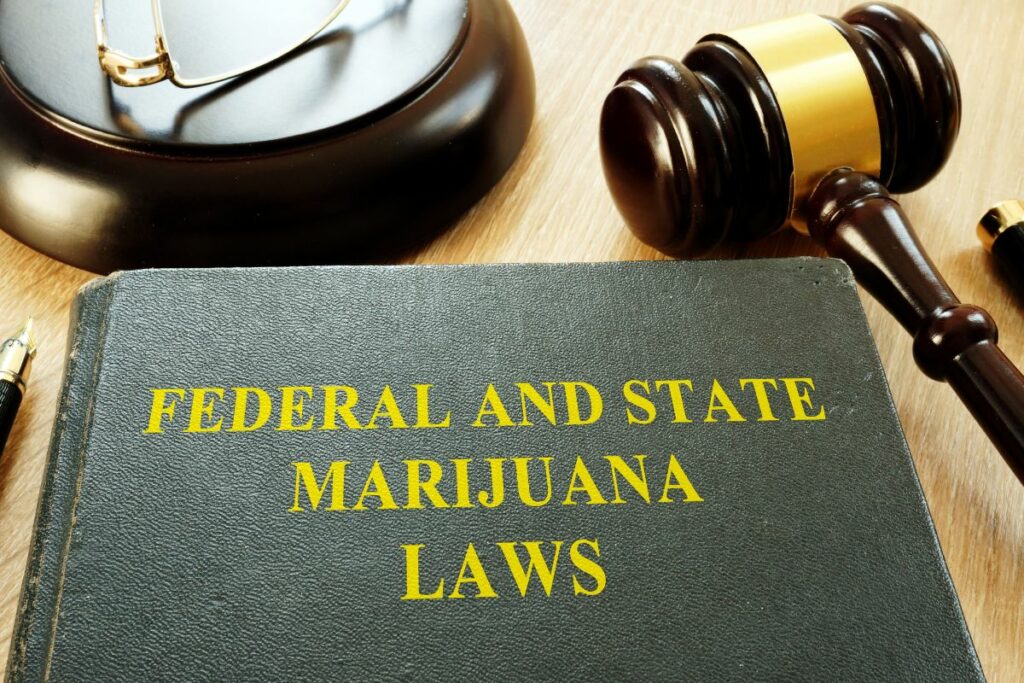
Federal and State Laws Regarding THCa
As you navigate the complex legal landscape of tetrahydrocannabinolic acid (THCa) in the United States, you’ll find significant differences between federal and state laws. The legal status of this non-psychoactive precursor to THC is not uniform across the country, and understanding these distinctions is crucial, especially if you’re interested in the legality of hemp-derived products such as hemp flower.
Federal Law and THCa
Under federal law, THCa is not listed as a controlled substance separate from delta-9-tetrahydrocannabinol (THC). This entails that THCa’s legal status is often tied to the regulatory framework surrounding THC. With the enactment of the 2018 Farm Bill, hemp and hemp-derived compounds containing less than 0.3% THC on a dry weight basis are considered legal. However, this threshold does not explicitly differentiate between delta-9-THC and its acidic form, THCa. Consequently, instances where THCa could potentially convert to THC put the legality of certain hemp products in a grey area at the federal level.
Interstate Variations in Cannabis Legislation
State laws can deviate significantly from the federal stance. In states like Oregon and Rhode Island, cannabis, including THCa, has been legalized for medical use, and in Oregon, for adult recreational use as well. This means you can legally obtain and use THCa within the state boundaries, following local regulations. On the other hand, states such as Idaho and Kansas maintain stringent anti-cannabis laws where any product derived from the cannabis plant, potentially including THCa, could be considered illegal. This patchwork of regulations creates a legal environment where the same compound could have drastically different legal implications based on the state you’re in. Always check your state’s specific statutes to understand the precise legal standing of THCa.
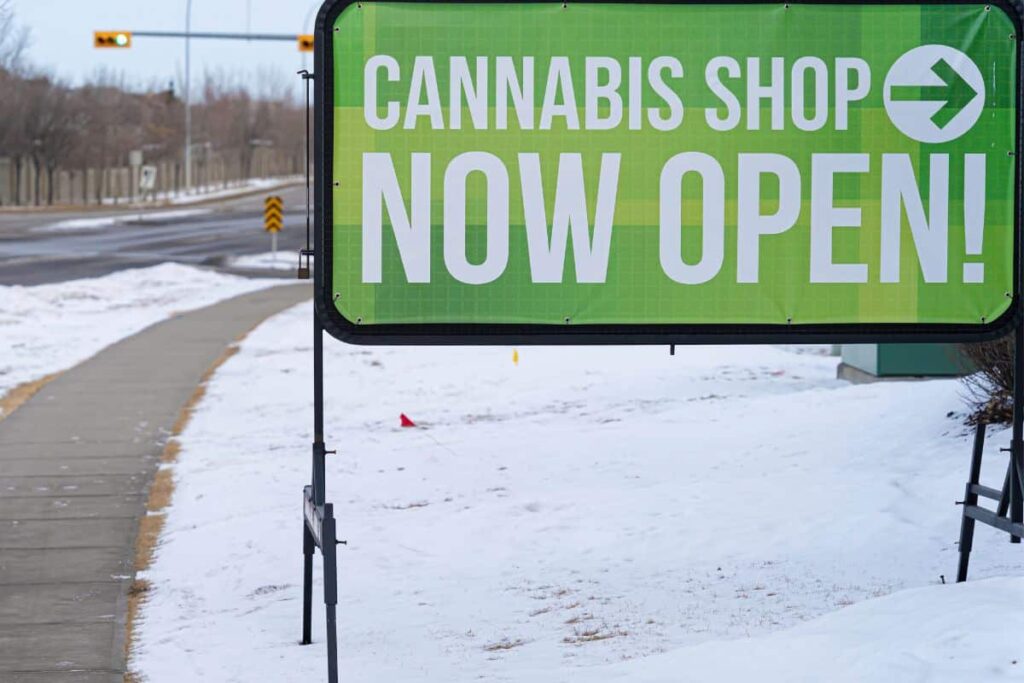
Availability and Usage of THCa in Connecticut
In Connecticut, THCa products fall under the medical marijuana program. Your access to these products depends on specific state regulations, and they are not available for recreational use.
Purchasing THCa Products
To purchase THCa products in Connecticut, you must be a patient certified by a physician for the state’s medical marijuana program. Certified patients can buy THCa products from licensed dispensaries. The list of qualifying conditions to become a certified patient is exact, and it’s essential to have all required documentation before attempting to purchase.
Possession and Consumption
As a certified patient, you are allowed to possess THCa products. However, the consumption of these products is limited to private spaces. Carrying and consuming THCa products in public could lead to legal repercussions. Remember, only adults aged 18 and over can be approved as patients, and THCa for recreational use remains illegal. For smokable products or other forms of consumption, understanding the specifics of Connecticut’s consumption laws is vital to ensure compliance.
Hemp-Derived Products and Legal Considerations
When you explore the legality of hemp-derived products, including THCa, it’s crucial to understand the regulations established by the Farm Bill and the specifics of state law regarding Delta-8 and other hemp-derived THC compounds.
Understanding the Farm Bill’s Impact
The 2014 Farm Bill provided a federal framework that allowed for the cultivation of hemp, emphasizing that products derived from these plants should not exceed 0.3% Delta-9 THC on a dry weight basis. The later 2018 Farm Bill clarified this stance, distinguishing between psychoactive cannabis (marijuana) and hemp based on this Delta-9 THC content. In Connecticut, this legal definition means that hemp and its derivatives, such as THCa, are lawful provided they adhere to these THC thresholds.
- Hemp is defined as the plant Cannabis sativa L. and any part of the plant with a Delta-9 THC concentration of not more than 0.3%.
- Hemp-derived products can include oils, edibles, topicals, and more, but they should always comply with the specified THC limit.
Total THC testing methods, which may include THCa content, are significant because THCa can convert to THC when decarboxylated, and therefore affect the legality of the product.
Delta-8 and Hemp-Derived THC Regulations
The emergence of hemp-derived Delta-8 THC has introduced new regulatory challenges. Unlike Delta-9 THC, Delta-8 is a minor cannabinoid present in hemp plants, and its legal status has been murky in many jurisdictions, including Connecticut. While federal law does not explicitly classify Delta-8 as illegal, your understanding should be nuanced, given that:
- Delta-8 can be derived from hemp, falling within the federal definition of legal hemp products if the total THC concentration remains below 0.3%.
- Connecticut has specific regulations around hemp-derived THC, including but not limited to Delta-9, that need to be considered.
You must be cognizant that while hemp-derived products may be federally legal, individual states have the authority to enforce stricter standards around cannabinoids like THCa and Delta-8 THC. Always assess both federal and state regulations to determine the legality of specific hemp products in your area.
Impact of Heat and THC Content on Legality
Understanding the chemical changes that occur to cannabis compounds when exposed to heat is crucial for grasping its legal status. Your knowledge of these transformations can impact the interpretation of legality, specifically in states like Connecticut.
Conversion of THCa to THC Through Heat
Tetrahydrocannabinolic acid (THCa) is a non-psychoactive cannabinoid found in raw and unprocessed cannabis. When exposed to heat, THCa undergoes a process called decarboxylation, which converts it into tetrahydrocannabinol (THC), the primary psychoactive compound in cannabis. This chemical change is significant because THC content is often the focal point when determining the legal status of cannabis products.
- Raw Cannabis: Contains THCa, not psychoactive
- Heated Cannabis: Contains THC, psychoactive
This distinction is pivotal; possessing cannabis with high THCa levels could be interpreted differently from cannabis containing equivalent levels of THC, following Connecticut’s legal frameworks.
Total THC Content and Legal Thresholds
The total THC content in a cannabis product plays a fundamental role in its legality, as laws often set specific thresholds for allowable THC levels. In Connecticut, cannabis with a delta-9 THC concentration greater than 0.3 percent on a dry-weight basis is regulated under state controlled substances laws.
- Legal Threshold: 0.3% delta-9 THC content
- Measurement Method: Dry-weight basis
Importantly, the total THC content includes both delta-9 THC and the potential THC that could be derived from THCa, considering the typical conversion rates during heat exposure. Always ensure your cannabis products comply with Connecticut’s legal standards to avoid inadvertently violating the law due to misunderstanding the implications of THC content.
Comparative Analysis of State Regulations
| State | Hemp-Derived THCa Regulations | Marijuana-Derived THCa Regulations |
|---|---|---|
| California | Hemp-derived products often legal; regulations on THC content apply | Legal for medical and recreational use; specific regulations on THC content |
| Colorado | Hemp-derived products generally legal; THC content regulations | Legal for medical and recreational use; THC content regulations apply |
| New York | Hemp-derived products generally legal; THC content regulations | Legal for medical and recreational use; THC content regulations apply |
| Texas | Hemp-derived products may be legal with restrictions; THC content rules | Strict regulations on marijuana; medical use allowed; THC content regulated |
| Florida | Hemp-derived products may be legal; THC content restrictions | Medical marijuana legal; THC content regulations apply |
| Washington | Hemp-derived products generally legal; THC content restrictions | Legal for recreational and medical use; THC content regulations apply |
| Illinois | Hemp-derived products generally legal; THC content restrictions | Legal for medical and recreational use; THC content regulations apply |
| Connecticut | Hemp-derived products legality may vary; specific THC content regulations may apply | Medical marijuana legal; THC content regulations apply |
When navigating the cannabis regulations across the United States, you’ll encounter a complex patchwork of laws. This segment offers a comparative analysis, specifically focusing on Tetrahydrocannabinolic Acid (THCa), between Connecticut and other states, shedding light on the legal standing of cannabinoids.
Cannabis Legality in Other States
Cannabis laws vary significantly across the nation. For instance, California and Colorado were early adopters, legalizing recreational cannabis use. On the other hand, states like Wyoming and Idaho maintain stringent prohibitions, not recognizing cannabis for medicinal purposes. Alabama and Tennessee restrict legal cannabis use to CBD with low THC content, whereas Washington and Massachusetts allow comprehensive medical and adult-use programs.
Regulatory Differences Between States
The legal landscape of cannabis, including cannabinoids like CBD and THCa, is marked by regulatory contrasts. In Connecticut, recent strides have led to the legalization of medicinal marijuana and the decriminalization of minor cannabis possession. Comparatively, Florida and Ohio have approved medicinal cannabis but remain miles away from Connecticut’s liberal stance, with ongoing debates about the legal status of THCa and other cannabis derivatives.
Minnesota and Michigan, similar to Connecticut, permit the use of medical marijuana, but Michigan has also legalized it for recreational use. Maryland and Delaware, while having decriminalized possession to some degree, are still deliberating the full legalization seen in states like New Jersey and Vermont, which embrace a more permissive regulatory approach.
This intricate regulatory environment means that while THCa may be legal in Connecticut under certain conditions, its legality varies in other states based on their unique cannabis laws.
Practical Tips for THC and THCa Consumers
Navigating the complexities of cannabis laws and product options can be challenging as a consumer. The following advice focuses on helping you understand product labeling, staying informed about your legal rights and responsibilities, and ensuring safe consumption practices.
Understanding Product Labels
When you’re perusing THC and THCa products, pay careful attention to the labels. They often contain critical information about the cannabinoid content. Look for specific percentages of THC (Tetrahydrocannabinol) and THCa (Tetrahydrocannabinolic acid), which is THC’s non-psychoactive precursor. Labels might also display content related to CBD (Cannabidiol), another cannabinoid typically found in cannabis products.
Knowing Your Rights and Responsibilities
Your rights as a consumer depend on the cannabis laws of Connecticut, which clearly define what’s legal for recreational use and for medical purposes. While THC is permissible within the state, ensure you’re aware of the purchase and possession limits. Stay informed about any registration or certification that may be necessary if you’re using cannabis for medical reasons.
Safe Consumption Practices
Given the psychoactive effects of THC, responsible usage is paramount. Start with a small amount to understand its impact on your body, particularly if you’re new to these products. Note that while THCa itself does not produce psychoactive effects unless decarboxylated (heated), it can become potent THC, which does have psychoactive properties, hence consuming it in foods or where heat is applied will lead to intoxication. Understand the potential effects and derivatives such as edibles, oils, or tinctures, and how they differ from smoking or vaping. Always consume in a safe, private environment and never drive or operate heavy machinery while under the influence.
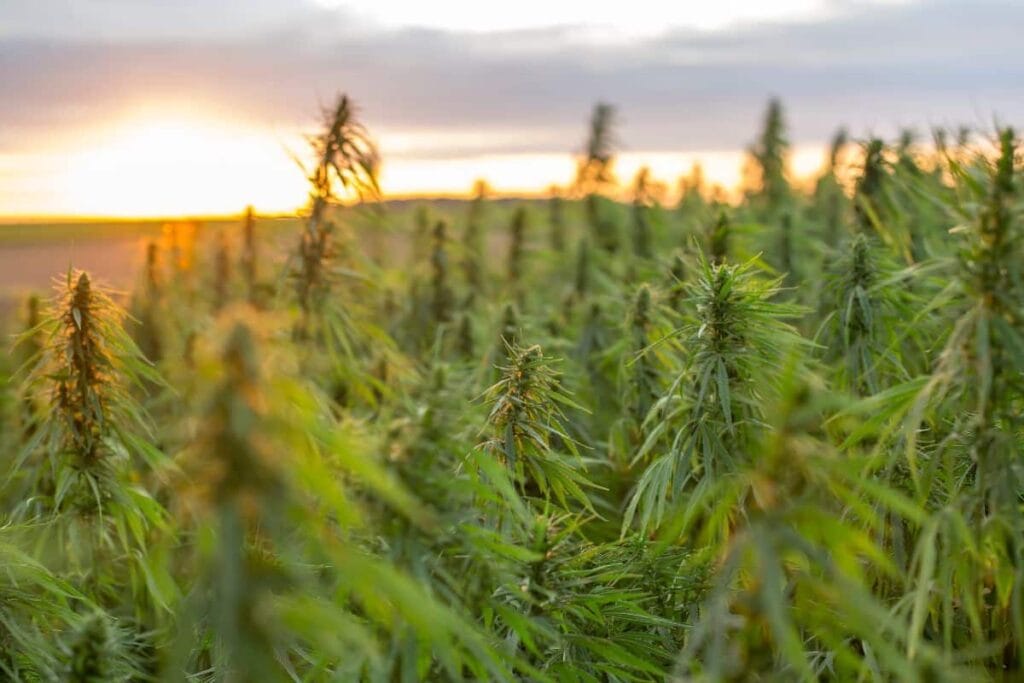
Cultivation and Production of THCa
Understanding the legality of THCa in Connecticut requires some insights into how cannabis is cultivated and the nuances of its legal status. Here, you’ll learn about the cultivation of cannabis for THCa production and the specific legal conditions that apply in Connecticut.
Legal Aspects of Cannabis Cultivation
In Connecticut, cannabis cultivation for commercial purposes is subject to state laws and regulations. For a substance like THCa, which is a non-psychoactive cannabinoid found in raw cannabis plants, the legal climate is largely intertwined with the overall legal status of cannabis. Hemp-derived products containing less than 0.3% THC on a dry weight basis are legal at the federal level due to the Farm Bill, which Connecticut complies with.
However, marijuana—cannabis containing more than 0.3% THC—and therefore products with a high concentration of THCa derived from marijuana are considered a controlled substance and subject to Connecticut’s comprehensive medical marijuana program. This program allows cultivation by licensed producers and remains regulated to ensure compliance with both state and federal law.
THCa Flower and Its Unique Status
THCa flower is essentially the raw or dried cannabis flower before it has been decarboxylated to convert THCa to THC. THCa itself is not intoxicating, and its legal standing is somewhat ambiguous. In Connecticut, adult-use cannabis was legalized in 2021, which has implications for THCa’s status. If derived from federally legal hemp, THCa might not fall under the same strict regulations as THC despite being the precursor.
However, THCa derived from marijuana falls under the same regulatory framework as THC and is permitted for cultivation by licensed parties under Connecticut’s adult-use and medical programs. The cultivation of cannabis for the purpose of generating THCa flower requires adherence to strict guidelines including plant counts, security measures, and reporting to ensure that the product does not circumvent the state’s legal frameworks intended to control psychoactive components.
The Future of THCa and Cannabis Laws
In the evolving landscape of cannabis regulations, your understanding of the legal status of THCa in places like Connecticut is crucial, especially as laws and scientific knowledge develop hand in hand.
Potential Changes in Legislation
In the United States, cannabis laws are undergoing significant reform. For THCa, specifically a non-psychoactive cannabinoid found in raw and unprocessed cannabis, the legal landscape is intrinsically tied to the broader legal context of cannabis which is in flux. Connecticut, having legalized medical marijuana, allows certain cannabis products under specific conditions. However, THCa’s legal status may shift further, propelled by potential changes in both state legislation and federal law. For instance, Connecticut and other states continually review their lists of allowable conditions for medical cannabis use, which could lead to increased accessibility of THCa-containing products.
Evolving Understanding of Cannabinoids
As research progresses, the understanding of cannabinoids like THCa and CBD is becoming more sophisticated. Scientists are uncovering the nuanced benefits of these compounds, prompting regulators to revisit existing cannabis laws. With increasing knowledge, both medical professionals and lawmakers in the United States are recognizing the potential therapeutic applications of cannabinoids, which could lead to more nuanced regulations that differentiate between various compounds found in the cannabis plant. Your awareness of these developments is crucial for anticipating how federal law and individual state legislations, such as those in Connecticut, may adapt to new scientific insights into cannabinoids.
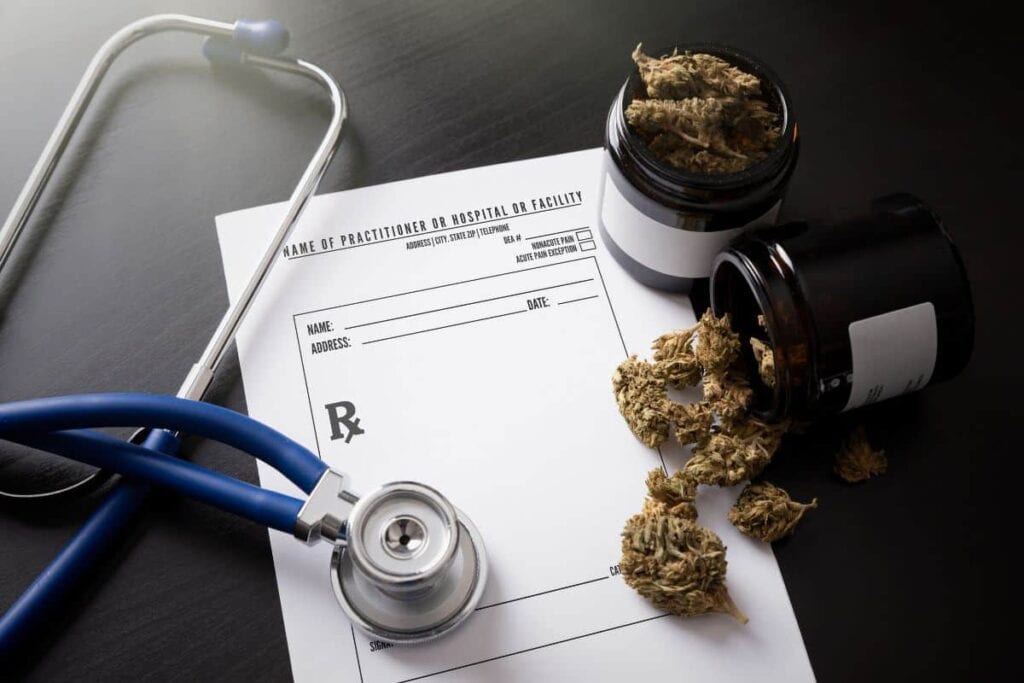
Health Implications and Therapeutic Potential
As you explore the complexities of tetrahydrocannabinolic acid (THCa) within Connecticut’s legal framework, understand that its medical applications and the ongoing research into cannabis and cannabinoids might affect your perception of its health implications and therapeutic potential.
Medical Applications of THCa
Medical research has identified that THCa, a non-intoxicating cannabinoid found in raw and live cannabis, may have numerous health benefits. In Connecticut, as in other states where medical cannabis is regulated, certain preparations of cannabis, potentially including those containing THCa, could be prescribed. For instance, evidence suggests that THCa has anti-inflammatory and neuroprotective effects, making it potentially beneficial for conditions such as arthritis and neurodegenerative diseases. It’s important for you to consult with a healthcare professional about THCa to understand its legal status and potential for medical use in your state.
Research on Cannabis and Cannabinoids
Ongoing research is crucial to unlocking the full potential of cannabinoids, including THCa, in therapy. Studies highlight that cannabinoids might play a significant role in managing symptoms and conditions where traditional treatments have fallen short. For example, cannabinoids like THCa have been observed to exhibit properties that could inhibit the growth of certain bacteria, such as Escherichia coli, which might lead to advances in antibacterial therapies. Continued support for cannabinoid research is vital to substantiate these findings and fully understand the therapeutic effects of THCa.
Legal Issues Surrounding Recreational Use
In Connecticut, understanding the legal landscape of recreational cannabis and hemp-derived products is crucial for ensuring compliance with state laws. The distinction between what is allowed and what remains under legal scrutiny can impact possession and use.
Recreational Marijuana vs Hemp-Derived Products
Recreational marijuana’s legality varies widely across the United States, but specifically in Connecticut, adults are permitted to possess and use marijuana under state law. However, it’s essential to differentiate between typical marijuana and hemp-derived products. Hemp-derived products, such as those containing cannabidiol (CBD), are federally legal and must contain no more than 0.3% THC; they’re often regarded as less contentious due to their low psychoactive properties.
Here is a comparison of the two:
- Recreational Marijuana: Contains higher THC levels and is regulated by the state for adult use.
- Hemp-Derived Products: Federally legal under the 2018 Farm Bill and must contain THC levels no greater than 0.3%.
Legal Complications and Consumer Guidance
Navigating the legalities of recreational cannabis can be complex, and as a consumer, it is your responsibility to stay informed. State laws in Connecticut allow the use of recreational marijuana, yet federal law may conflict with state regulations in certain contexts, such as on federal lands or in federally funded institutions.
Here are key points for your guidance:
- Always be aware of state laws concerning recreational use and possession limits.
- Recognize that while you may legally use recreational marijuana, unlawful possession or use outside of state guidelines can result in legal ramifications.
- It is prudent for consumers to educate themselves on the local cannabis laws to avoid any inadvertent legal issues.
Frequently Asked Questions
In Connecticut, the legality of THCa and related compounds is nuanced and subject to specific legislation that you should understand if you’re interested in the topic.
What are the legal implications of shipping THCa?
When it comes to shipping THCa, you must adhere to both federal and state laws that apply to cannabis-related substances. As federal law may differ from Connecticut state law, it’s important to ensure compliance with all regulations.
Are there any psychoactive effects associated with THCa?
THCa itself is not psychoactive. However, it can convert into Delta-9 THC upon decarboxylation, which is psychoactive. Understanding this chemical process is key, especially considering Connecticut’s regulations on THC content in cannabis products.
How does THCa’s legality in Connecticut compare to its status in other states?
Various states have different approaches to regulating THCa and cannabis. Connecticut has specific laws for cannabis use and the legality of THCa, which differ from the regulations set by other states.
What is the current status of Delta-8 THC legality in Connecticut?
Delta-8 THC is a compound similar to Delta-9 THC, the main psychoactive component in marijuana. The legality of Delta-8 in Connecticut is complex, and you should review the most current legislation to understand the rules around its use and sale.
Has recent legislation in Connecticut affected the legal status of THCa?
Legislation in Connecticut evolves, and recent changes may have affected the legal status of THCa. It’s essential to remain informed about recent legislative updates to ensure compliance with current laws.
Are there any specific rules for possessing or distributing THCa in Connecticut?
Connecticut has set forth particular rules around the possession and distribution of THCa. For instance, only licensed dispensaries may legally distribute cannabis products, and there may be limits on the amount of THCa a product can contain. It’s crucial to consult the state’s regulations to understand these specifics.

